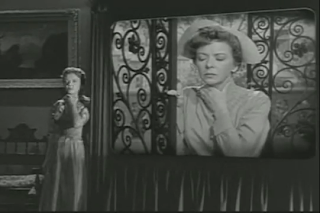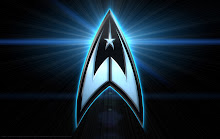The re-imagined Battlestar Galactica has a significant advantage in this area. It already had an entire miniseries to do all this, so the actual pilot has no problem on the entertainment side. The show loses absolutely no momentum in this transition, and if anything it slows down to focus more on the characters and their actions in the face of the impending Cylon threat.
Except, in this episode, it's more like the continual Cylon threat. For some unknown reason, the Cylons are jumping to hyperspace every 33 minutes to meet up with the Galactica and its fleet. Not a moment too soon, not a moment too late. By that time, every ship in the fleet must jump to hyperspace or risk further damage by the Cylons. It appears to be an effective strategy, as the crew on board the Galactica is tiring more and more with each jump, and systems begin to fail, causing them to lag farther behind on the 33 minute cycle.
Meanwhile, Baltar is having issues of his own. The consciousness of Number Six is still inhabiting his body and pushing him to accept that God exists and has a plan for him, and he is constantly haunted by the fact that it was him who let the Cylons infiltrate Caprica's defenses. There were actually some enjoyable scenes with him in this episode, such as when he is trying to carry a conversation with Roslin and others, but Six is posing questions of her own. He is forced to phrase his responses in a way that will work for both parties, while trying not to sound crazy.

Eventually, it is discovered that one of their own carriers is leading the Cylons to attack them at the end of each cycle, so Apollo and Starbuck reluctantly destroy it. You would expect an episode like this to occur somewhere in the middle of a season, and not at the beginning of one, but this episode is still solid. The plot continues to be entertaining and engaging, although there are still some things to be worked out. I can't entirely feel sympathy for the characters at this point, and there were quite a lot of trips into Baltar's head. (They were okay scenes, but the constant bantering got old pretty quickly)
Score: 8
Best Quote: "Well, I'm sure someday if you're a good Cylon, he'll reward you with a lovely little walking toaster of your very own."
Best Moment: The crew being forced to destroy the carrier.


















